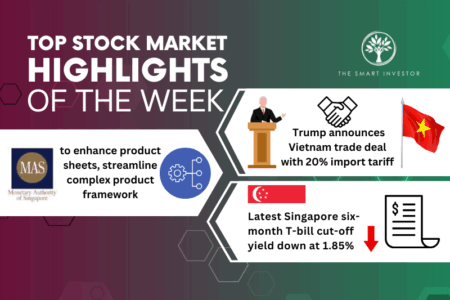The term “strategic review” has now become a buzz phrase.
Hot on the heels of Singapore Press Holdings’ (SGX: T39) recently-announced strategic review, Singtel (SGX: Z74) has announced its own strategic review.
The telecommunication company (telco) will impair the intangible assets and goodwill in two US-based businesses, while also taking an exceptional charge on its Australian subsidiary, Optus.
The adjustments will impact its fiscal 2021 second-half earnings by S$839 million and full-year earnings to the tune of S$1.2 billion.
CEO Yuen Kuan Moon has explained that this review was necessary to realign the businesses to position them for future success.
He will provide more details when the group announces its full fiscal 2021 earnings.
In the meantime, here are three things that investors need to know about this review.
Non-cash impairments
Singtel conducts a regular annual review of its major investments.
The most recent review has assessed the recoverable values of two investments — Amobee and its global cybersecurity business, to be below their carrying values.
In other words, these two investments’ market values are now lower than the original amount that Singtel paid for them.
A non-cash impairment charge of around S$589 million for Amobee and S$336 million for its cybersecurity business will be taken to write down the value of these investments.
In Australia, Singtel’s wholly-owned subsidiary, Optus, has completed the national broadband network (NBN) rollout and migrated customers over.
An impairment charge of A$197 million (around S$204 million) will be taken on legacy fixed network assets that are no longer in use.
In addition, Optus will also take on an exceptional charge of around S$101 million for staff payroll adjustments and systems and process realignment associated with a review of its staff compensation.
Summing these four amounts yields a total impairment charge of S$1.23 billion.
Businesses facing headwinds
Challenges faced by both Amobee and the cybersecurity business represented by Trustwave led to the write downs.
Amobee is a digital advertising business based in the US.
Its role is to assist brands, agencies and media companies to optimise their advertising across various media to drive the growth of their customers.
Prior to the write-down, Amobee’s business was under pressure.
For Singtel’s fiscal 2021 half-year results (1H2021) ended 30 September 2020, Amobee reported a nearly 30% year on year decline in operating revenue to US$295 million.
Gross margin shrank from 25% to 22% over the same period, while the business registered an operating loss of US$32 million, nearly triple the loss incurred in the prior year.
CEO Yuen said that Amobee is witnessing a year-long contraction in advertising spend by some of the largest agencies and advertisers in the US.
Certain customer segments such as the fast-moving consumer goods, automotive and travel industries are taking longer to recover, thus badly impacting the business.
Trustwave is struggling in the North American market due to the commoditisation of its legacy products.
The company is attempting to pivot its product development towards cloud platforms that display more potential and are more resilient during this pandemic.
For 1H2021, Trustwave saw its operating revenue inch up 4.5% year on year to US$185 million, boosted by a 7.5% year on year increase in its security business’ revenue.
However, the gross margin plummeted eight percentage points from 36% to 28%.
Operating loss increased by 15% year on year from US$48 million to US$55 million.
Open to options
The CEO has made it clear that he is open to various options for the two businesses.
These could involve either restructuring their product or business segments, a full or partial divestment or partnering with other industry players.
Singtel is also open to strategic partnerships and deals that can enhance the value of both businesses.
The strategic review aims to eventually re-position Amobee and Trustwave to capture growth and to “reset” the business.
In turn, the success of the review will help Singtel to reshape its portfolio of investments to ensure the most efficient use of resources.
The group still believes that information communication technology (ICT) and cybersecurity are high-growth sectors that provide great potential for enterprise customers.
Get Smart: A more comprehensive review needed?
Singtel’s strategic review covers just its strategic investments segment this time.
However, a bigger question is whether the group should undertake a strategic review for the entire organisation.
With its core business facing a barrage of problems, perhaps it’s time for management to consider a more comprehensive assessment of the entire group.
Investors in the blue-chip telco could be facing a long wait, but at least they may be assured of a brighter long-term outlook.
We are in the golden age of growth where there is no shortage of growth trends. Over the past decade, we have seen the likes of Apple (NASDAQ: AAPL), Amazon (NASDAQ: AMZN) and Alphabet (NASDAQ: GOOGL) surpass the trillion-dollar market cap mark. Growth trends alone will not guarantee success. You need to find excellent companies that are capitalising on these trends too. And we believe cloud computing is one trend that fills this sweet spot. Join us for a FREE webinar: The Golden Age of Growth to maximise your chances of success in this booming trend.
Follow us on Facebook and Telegram for the latest investing news and analyses!
Disclaimer: Royston Yang does not own shares in any of the companies mentioned.





